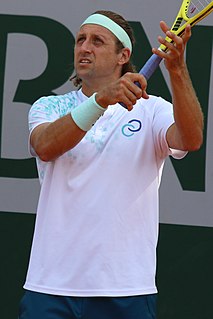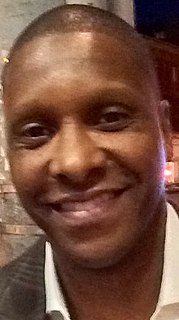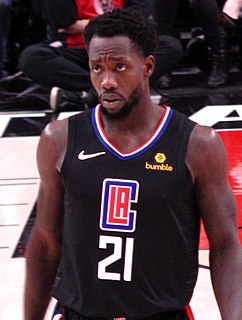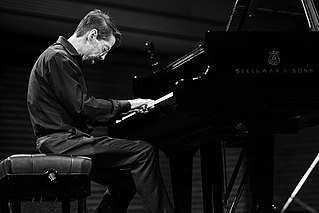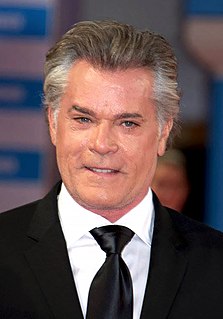A Quote by Terence McKenna
If you play the cultural game, it's like playing only with clubs or something, or playing only with the red marked cards. You have to play with a full deck, and that includes this pre-linguistic surround in which we are embedded.
Related Quotes
The natural thing in Africa is to start playing soccer at 8 or 9. You go outside and you play like kids play basketball here, and you grow a feel for the game. In Africa, the kids start playing basketball at 16 or 17 or 18, and when they get an opportunity to come here, they have been playing for only one or two years.
There are teams in England who play the football I like, keeping the ball on the ground, playing a quick game with one-twos, pressing their opponents high up the pitch. If one of these clubs were interested in me, I'd adapt to them well, and they could adapt to my way of playing, which isn't so common.
A lot of guys in New York will only play with an edge. They find their groove and that's their groove. to me, once I do that, there's no point in playing anymore because it should always be a mystery. Depending on who you are playing with, there are hundreds of ways of playing. I think that a master can play all those different kinds of time.
I'm sure there have been guys who didn't realize they had a concussion and just kept playing. It's a violent game. The head injuries are the most dangerous to play with. We're trained to play no matter what. If you can run, and you're able to focus and know your responsibilities, you're usually out there playing. You wouldn't have enough players if no one played hurt. Especially if you're, like, on special teams, you're going to do everything you can to stay in the game.

